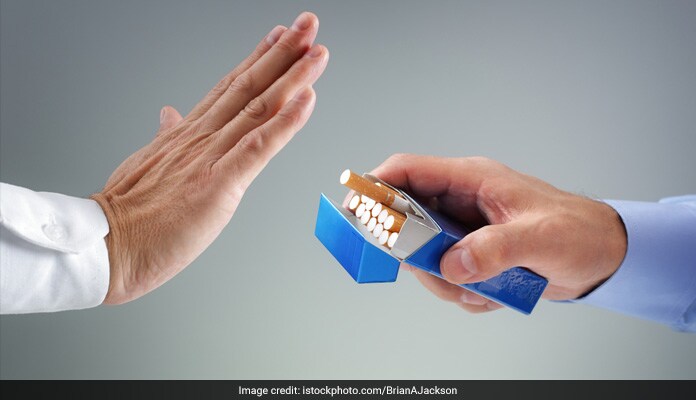Smoking, as we know is very tempting and addictive. That is why people who decide to quit smoking have a hard time doing so. But what happens when one actually does quit smoking? Here is the timeline of how your body copes when you decide to quit smoking.

After a day without a smoke, your risk of developing a heart disease lowers by half
HIGHLIGHTS
- It takes 20 minutes after a smoke for your blood pressure to be normal
- Your heart starts pumping blood without much stress after a day
- Your sense of smell and taste return to normal after two days
After 20 Minutes
Your blood pressure and pulse starts to return back to normal and your body resumes its usual temperature.
In 8 Hours
In 8 hours, your blood has half the amount of nicotine and carbon monoxide. The oxygen level in your blood also starts coming back to normal. Here is when you start craving another smoke. The depleting nicotine level in your body makes you crave more nicotine in the body and these manifests into the need to smoke again. Chewing gum, sipping water can be easy distractions from this craving.
After 12 Hours
Now, the carbon monoxide level in your blood is back to normal. This lessens the stress on your heart to pump more blood to the body to maintain the oxygen levels.
After 1 day
After a day without a smoke, your risk of developing a heart disease lowers by half. Smoking lowers the good cholesterol which raises the risk of developing coronary heart disease. After a day, the blood pressure begins to drop to normal and decreases the risk of heart disease due to high blood pressure. Now, physical exercises and running becomes easier to do.
In 2 days
Smoking causes damage to the nerve endings responsible for the senses of smell and taste. After two days the sense of smell and tastes starts coming back to normal. Your body starts getting rid of the toxins and your lungs get rid of the mucus from the cigarettes. The nicotine content in your body depletes completely. This is when you will start showing extreme withdrawal symptoms. You might start to feel dizzy, anxious and tired.
After 3 days
Just in 3 days after quitting smoking, your moodiness and irritability will be at its peak. You might get severe headaches and cravings as your body starts readjusting. This might make you want to smoke again.

Photo Credit: iStock
2 Weeks to 3 months
Your stamina increases throughout this time. Your lungs become more capable for your body to work out and run. Your blood flow improves and your risk of getting a heart disease reduces even more. Though you've made it past the toughest withdrawal symptoms, you might still crave a smoke.
Sometimes when you first quit smoking, your cravings for cigarettes are felt along with hunger pangs and extreme food cravings. So you can gain weight as well. You're also at a much lower risk for gum recession and periodontal disease.
In 9 months
Your lungs have significantly healed by now. This also decreases your risk of getting lung infections.
One year
In one year's time, after quitting smoking, a person's risk for coronary heart disease decreases by half.
After 5 years
In five years without smoking, your arteries and blood vessels begin to widen again. This widening indicates that the blood is less likely to clot, lowering the risk of stroke. This risk will continue to decrease over the next ten years as your body continues to heal.
After 10 years
After 10 years without a smoke, your chances of developing lung cancer are roughly decreased by half than those who continue to smoke. The likelihood of developing mouth, throat, or pancreatic cancer also decreases.
After 15 years
In 15, the chances of developing coronary heart disease and pancreatic cancer are the equivalent to that of a non-smoker.
After 20 years
After 20 years of quitting smoking, the risk of death from smoking-related causes, including both lung disease and cancer, and also pancreatic cancer drops to the level of a person who has never smoked in their life.
DoctorNDTV is the one stop site for all your health needs providing the most credible health information, health news and tips with expert advice on healthy living, diet plans, informative videos etc. You can get the most relevant and accurate info you need about health problems like diabetes, cancer, pregnancy, HIV and AIDS, weight loss and many other lifestyle diseases. We have a panel of over 350 experts who help us develop content by giving their valuable inputs and bringing to us the latest in the world of healthcare.














